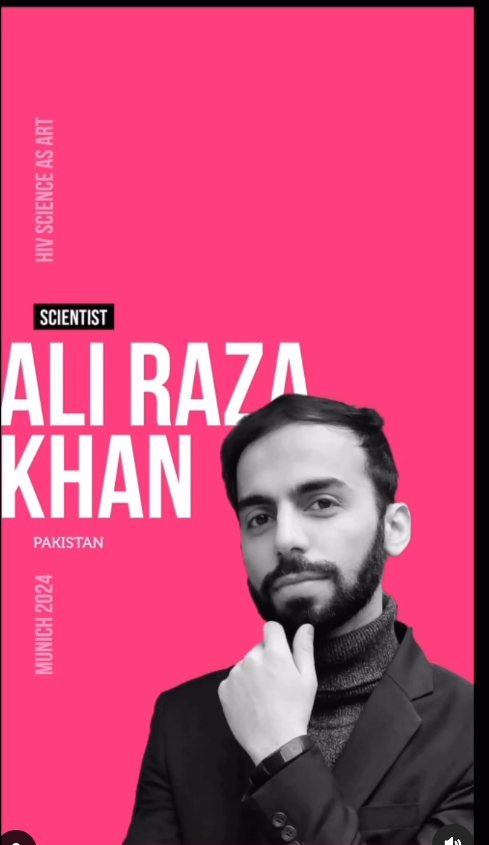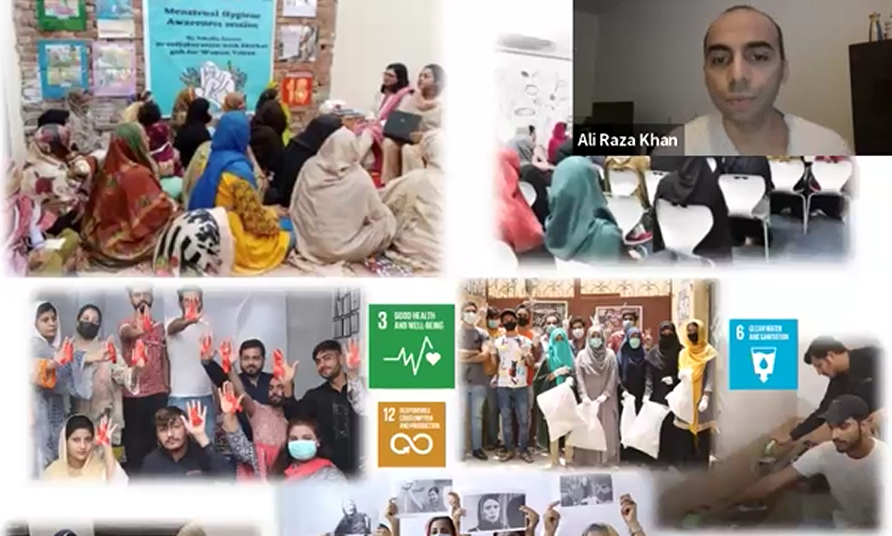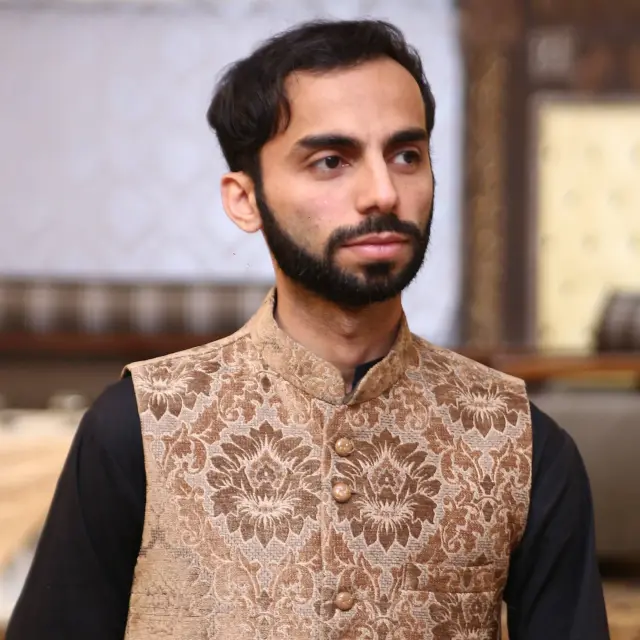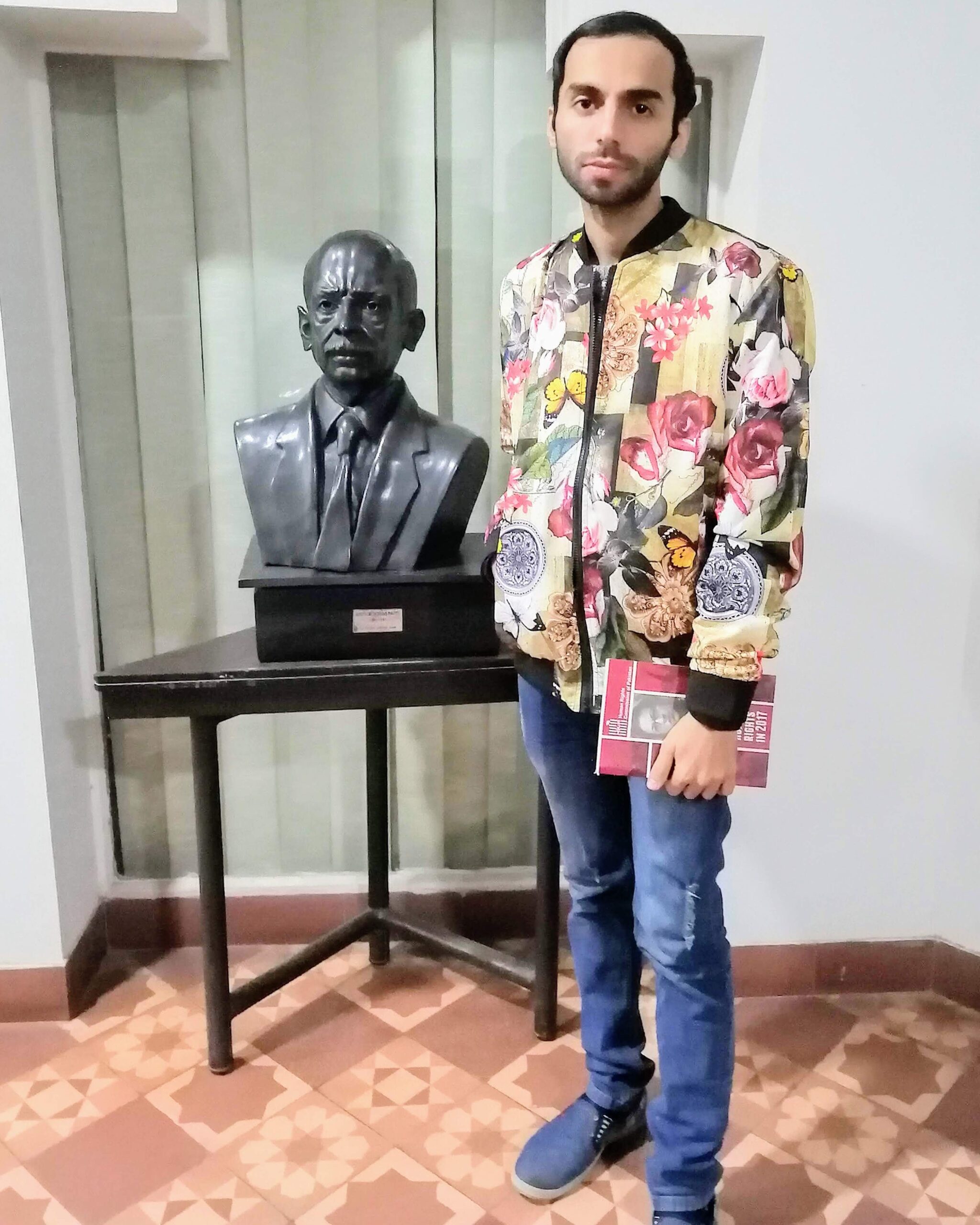Tag: HIV Positive
-

Breaking Barriers: An Inclusive Approach to HIV Advocacy and Community Leadership
In the dynamic sphere of global health and human rights, fostering inclusive and comprehensive approaches is paramount. During the last week of October 2024, I had the distinct honor of participating in an online consultation held on 2nd October 2024, orchestrated by the Love Alliance Partnership in collaboration with STOPAIDS, WACI Health, and the Global…
-

Ali Raza Khan Advocates for Key Populations at the Communities Delagation to the Global Fund Board’s Lusaka Agenda Discussion
The Communities Delegation to the Board of the Global Fund recently convened to discuss the Lusaka Agenda, a pivotal initiative aimed at enhancing the involvement and engagement of key populations in the fight against HIV, TB, and malaria. Among the passionate voices at this discussion was Ali Raza Khan, an HIV-positive activist from Pakistan. Ali’s…
-
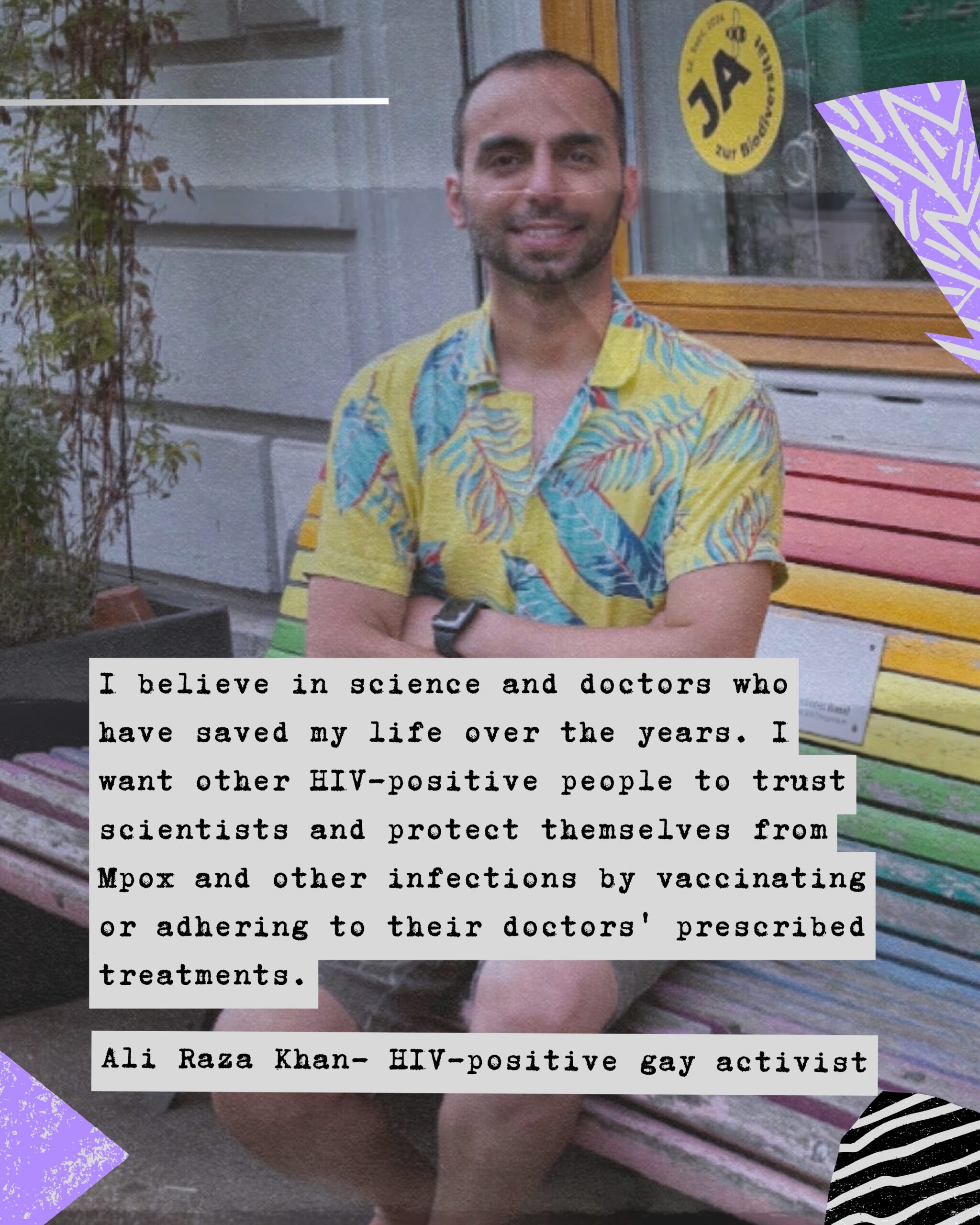
Mpox Vaccination for People Living with HIV: My Personal Experience
Mpox, a viral illness similar to smallpox, has been declared a global health emergency by the World Health Organization (WHO). For people living with HIV, understanding the risks and benefits of Mpox vaccination is vital. As an HIV-positive gay activist from Pakistan, I want to share my personal experience and insights on the importance of…
-
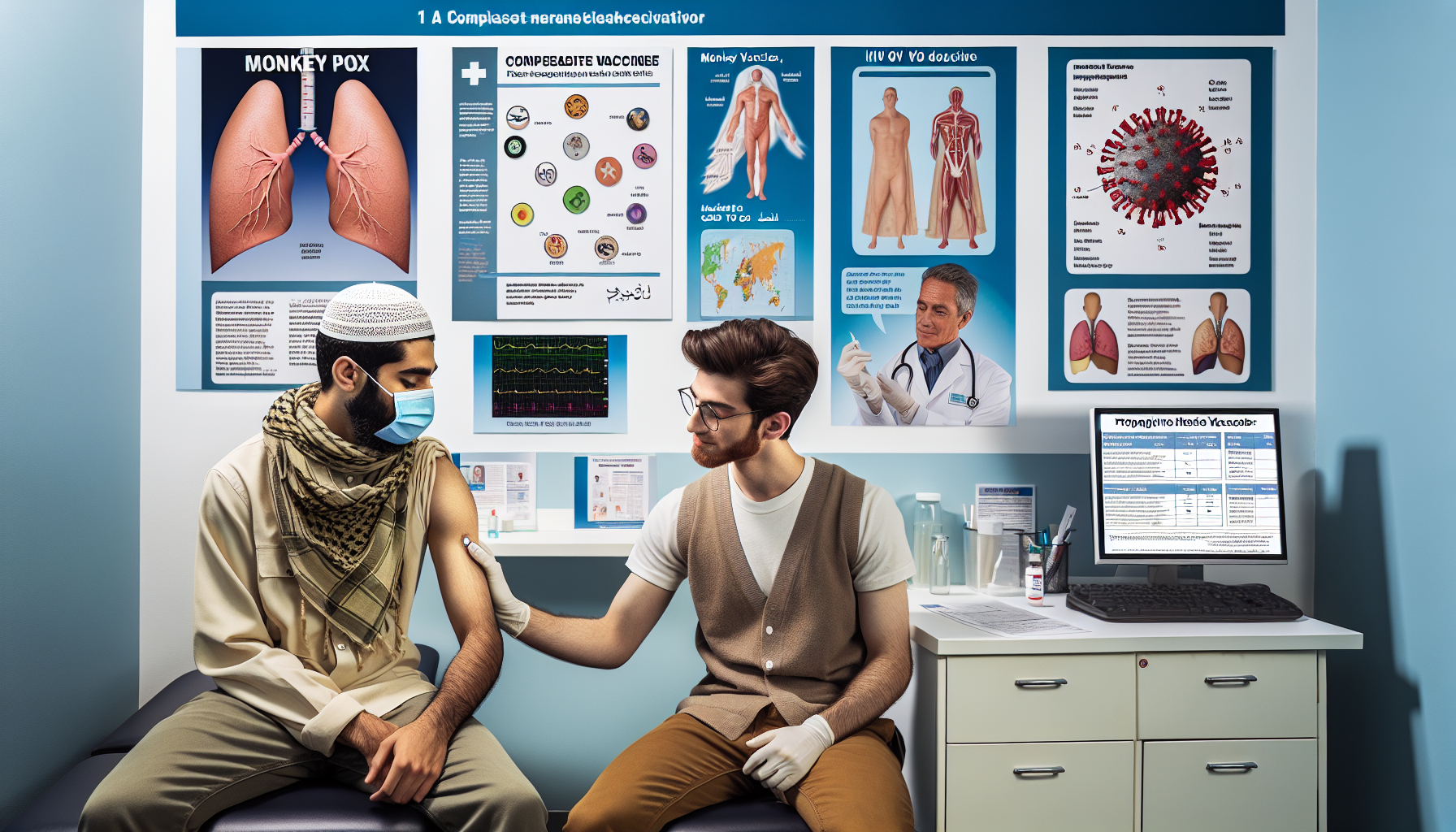
Monkeypox Vaccination for People Living with HIV: Ali Raza Khan Personal Experience and Guidelines for Community
Monkeypox, a viral illness similar to smallpox, has been declared a global health emergency by the World Health Organization (WHO). For people living with HIV, understanding the risks and benefits of monkeypox vaccination is crucial. As an HIV-positive gay activist from Pakistan, Ali Raza Khan wants to share personal experience and insights on the importance…
-
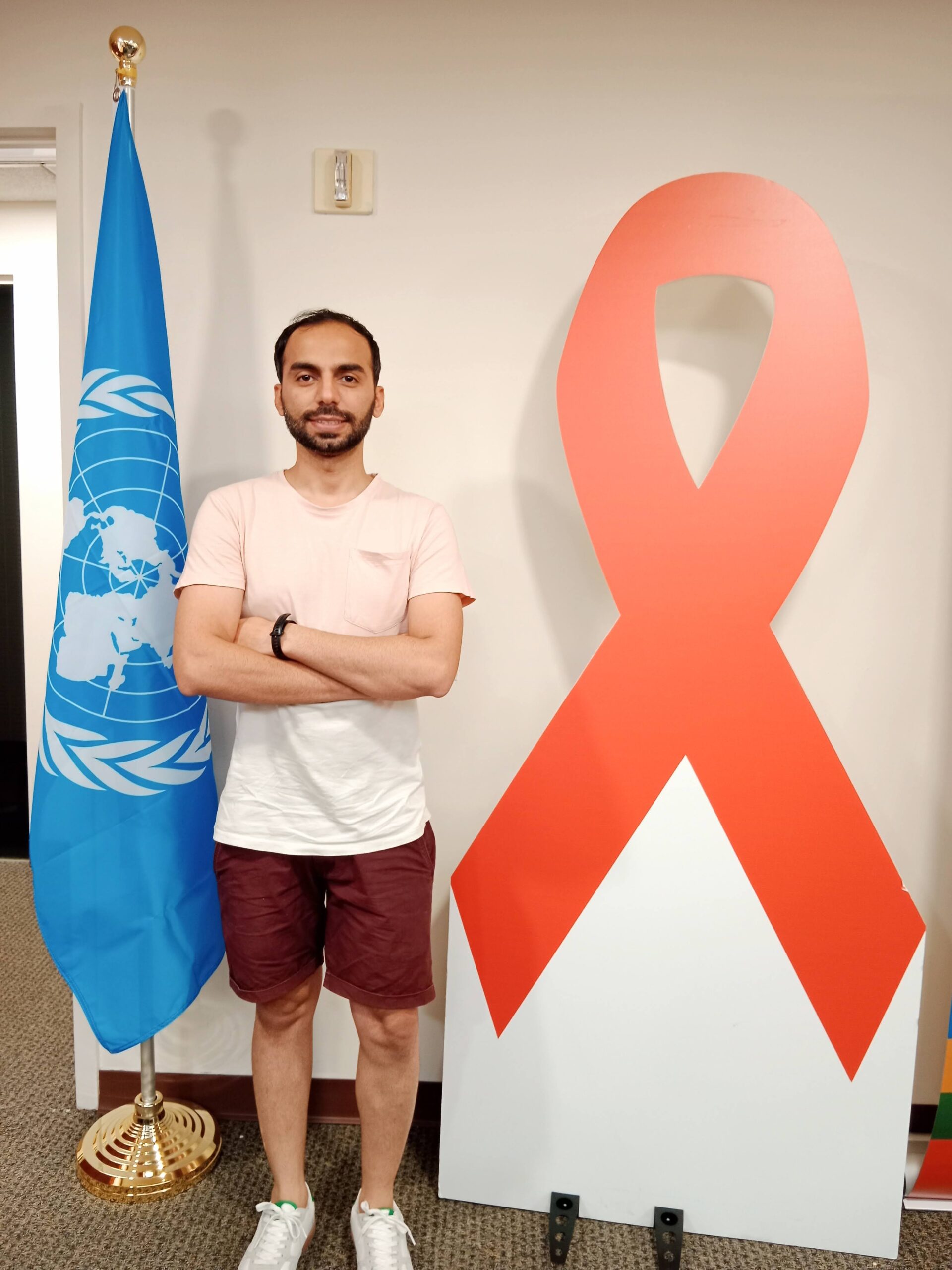
Speaker Ali Raza Khan: From Ruin to Resilience: Harnessing Community Strength in the Face of Natural Disasters
Munich, Germany – The AIDS 2024 conference will feature a pivotal session titled “From Ruin to Resilience: Harnessing Community Strength in the Face of Natural Disasters,” highlighting the critical intersection of climate change and public health. This scientific symposium, accredited for Continuing Medical Education (CME), will take place on July 25, 2024, from 15:00 to…
-

My Journey as a Member of the UNAIDS Global Advisory Group
Hey there! 🌟 I wanted to share some exciting and important news with you all. In May 2023, I was invited to join the UNAIDS Global Advisory Group on Monitoring the 30-80-60 Targets. Since then, I’ve had the privilege of serving as a member of this incredible team. As an HIV-positive gay activist from Pakistan,…
-

First Meeting of the UNAIDS Global Advisory Group on Monitoring the 30-80-60 Targets: A Robust Start
On May 10th, 2023, the UNAIDS Global Advisory Group on Monitoring the 30-80-60 Targets convened for their first meeting. This group, composed of global stakeholders dedicated to advancing the fight against HIV, gathered to discuss the development of a monitoring framework for the ambitious 30-80-60 targets set in the 2021 Political Declaration on HIV and…
-

Ali Raza Khan Joins UNAIDS Global Advisory Group on Monitoring the 30-80-60 Targets
Ali Raza Khan, an HIV-positive gay activist from Pakistan, has been invited to join the UNAIDS Global Advisory Group on Monitoring the 30-80-60 Targets. This esteemed group comprises global stakeholders dedicated to advancing the fight against HIV. Ali’s involvement marks a significant step towards ensuring the voices of young HIV-positive gay individuals and sex workers…
-
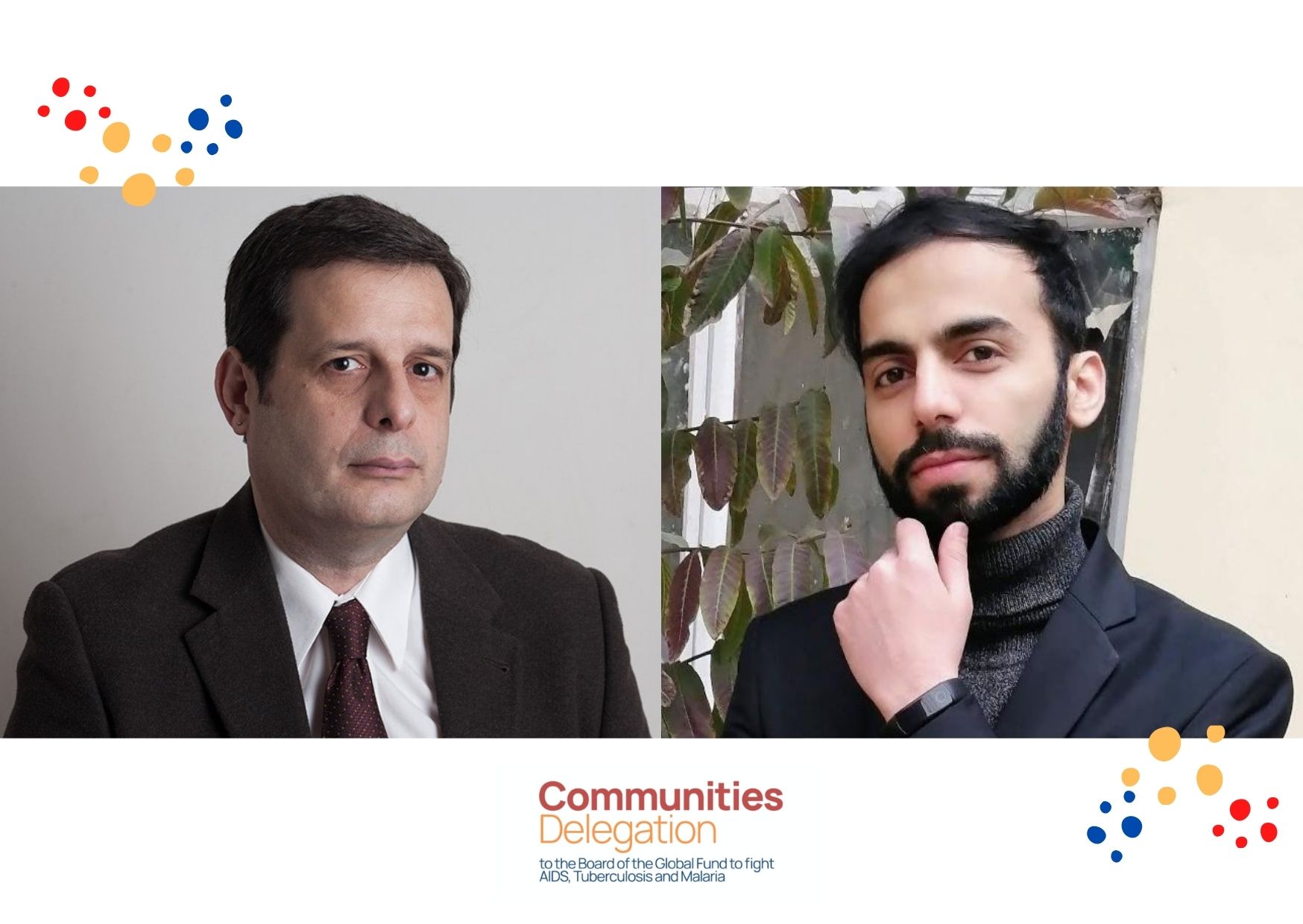
Communities Delegation to the Global Fund Board appoints Mr Ali Raza Khan as Alternate Board Member
Tuesday, 25th January 2022The Communities Delegation of people living with and affected by HIV, TB and malaria (Communities Delegation) to the Global Fund Board has the pleasure to announce the appointment of Mr Javier Hourcade as the Board Member and Mr Ali Raza Khan as the Alternate Board Member. The constituency confirmed and welcomed the…
-
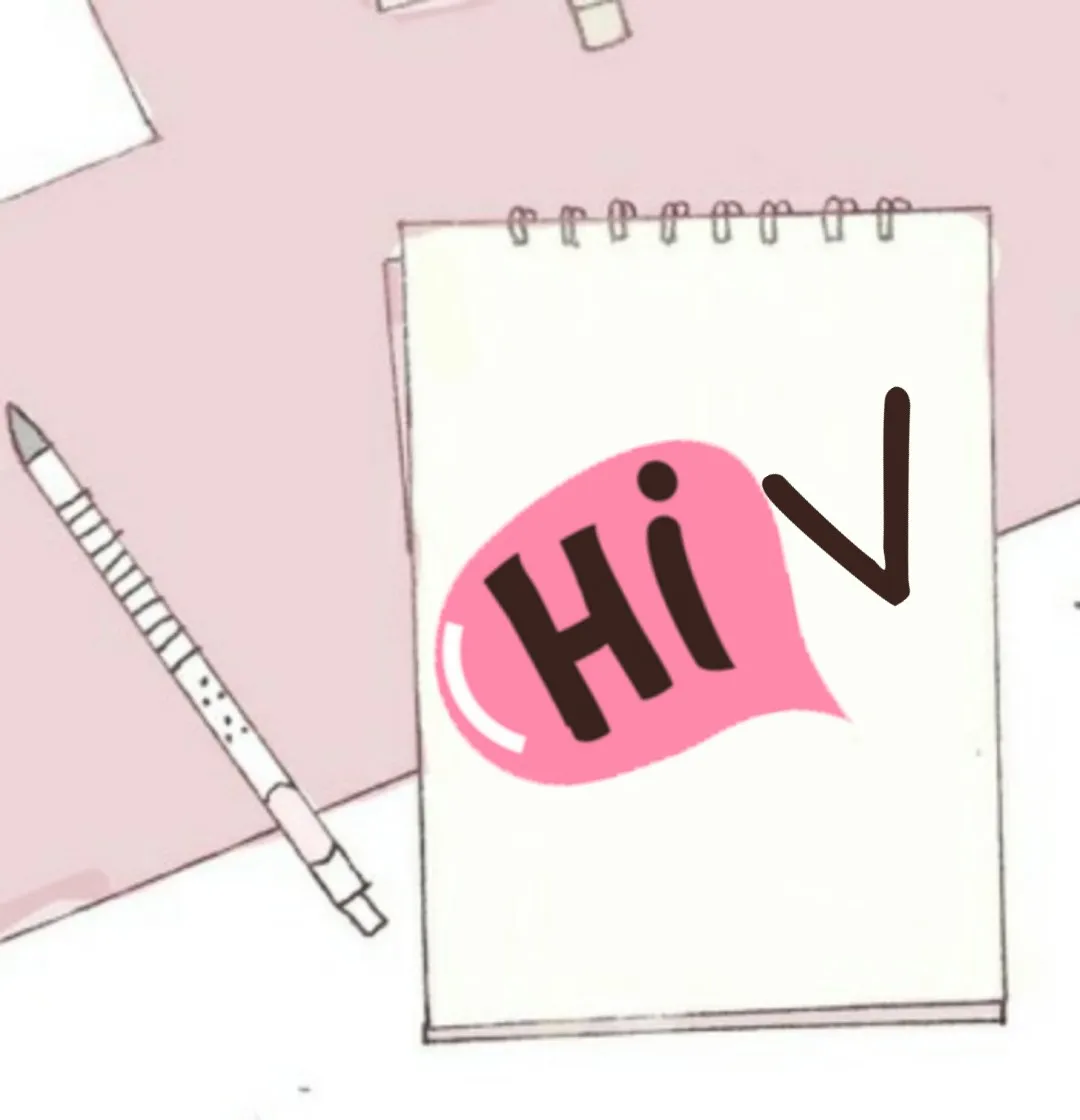
Diary of my HIV AIDS Positive Friend
I try to not think about when it happened from where it happened. Because whenever I think about that I am clueless and confused. Either it infected me a month ago, 3 months ago or 3 years ago. Either from some infected equipment or unprotected contact. What now I just think about is to keep…

